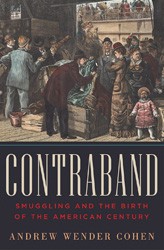By
– August 25, 2011
According to its editor, The Columbia History of Jews & Judaism in America “is about both the history of Jews in America and the history of Judaism in America.” Among the achievements of this anthology, which gathers essays by a distinguished group of scholars in social, religious, and cultural history, is the collection’s impressive range and focus in interpreting the rich and complex history of Jewish American experience over 350 years of migration, social and psychological adjustment, and institution-building in the new world.
The essays are uniformly strong and deeply learned (the pages of comprehensive notes after each essay testify to the contributors’ academic authority); indeed, they can be read and appreciated by specialists and general readers alike. For those who don’t realize the startling geographical spread of Jewish settlement in America, the essays by Dianne Ashton, William Toll, and Mark K. Bauman will be enlightening (for example, the Jewish population of California almost tripled between 1917 and 1937, from 63,652 to 157,471). For readers interested in the sweep of modern Jewish religious/intellectual history, Alan T. Levenson’s helpful distillation of Jewish thought in America offers an illuminating narrative. For those who wish to learn about the impact of the Holocaust on Jewish politics, or the role of emergent feminisms on religious orthodoxies, or how the Six Day War became a turning point in the story of Jewish American identity, there are strong essays on all these key subjects.
The essays are uniformly strong and deeply learned (the pages of comprehensive notes after each essay testify to the contributors’ academic authority); indeed, they can be read and appreciated by specialists and general readers alike. For those who don’t realize the startling geographical spread of Jewish settlement in America, the essays by Dianne Ashton, William Toll, and Mark K. Bauman will be enlightening (for example, the Jewish population of California almost tripled between 1917 and 1937, from 63,652 to 157,471). For readers interested in the sweep of modern Jewish religious/intellectual history, Alan T. Levenson’s helpful distillation of Jewish thought in America offers an illuminating narrative. For those who wish to learn about the impact of the Holocaust on Jewish politics, or the role of emergent feminisms on religious orthodoxies, or how the Six Day War became a turning point in the story of Jewish American identity, there are strong essays on all these key subjects.
Donald Weber writes about Jewish American literature and popular culture. He divides his time between Brooklyn and Mohegan Lake, NY.





